The heartbeat of Nigeria’s rich cultural tapestry has always been its traditional rulers — the custodians of history, culture, and the moral compass for their people. In recent years, the nation has mourned the loss of several towering monarchs whose legacies have shaped their communities and, by extension, the very fabric of Nigerian society.
Among them, the recent passing of Oba Shefiu Olatunji Adewale, the Olu of Epe, resonates deeply, a profound moment marked by sorrow, reflection, and respect.
The Life and Legacy of Oba Shefiu Olatunji Adewale, Olu of Epe
Oba Shefiu Olatunji Adewale’s life was one steeped in humility, service, and a steadfast commitment to the welfare of his people. Born in 1939, he emerged from a modest background to become not just a ruler but a beacon of peace and progress in Epe, a coastal town nestled on the fringes of Lagos Lagoon.
Before ascending the throne in 2010, Oba Adewale dedicated over three decades to the civil service, an experience that grounded his approach to leadership. Unlike many who might wield royal power as a means of grandeur, his tenure as the 19th Olu of Epe was characterized by an unyielding focus on community development and harmony. He understood the delicate balance between tradition and the fast-paced changes sweeping through Nigerian society, especially in areas bordering the megacity of Lagos.
A Monarch Who Bridged Tradition and Modernity
The Epe Kingdom’s history is one of resilience and cultural pride, and under Oba Adewale’s reign, the kingdom maintained its identity while embracing necessary modernization. His palace was often described as open — a place where elders, youth, government officials, and fishermen alike could find counsel.
He championed education and infrastructural improvements, advocating for better roads, healthcare facilities, and schools. Yet, he never strayed from his role as a cultural custodian, ensuring that festivals such as the Ojude Oba and traditional rites were preserved with reverence.
His death on May 31, 2025, at the age of 86, was met with a profound outpouring of grief.
In keeping with Islamic tradition, he was buried swiftly the same day, a solemn event witnessed by thousands. Government dignitaries and citizens alike paid tribute to his humility, wisdom, and dedication..

Other Prominent Monarchs Lost in Recent Years
The death of the Olu of Epe joins a list of significant monarchs who have passed in the last few years, each leaving behind a rich heritage:
The Falling of the Lion — Oba Lamidi Adeyemi III, the Alaafin of Oyo
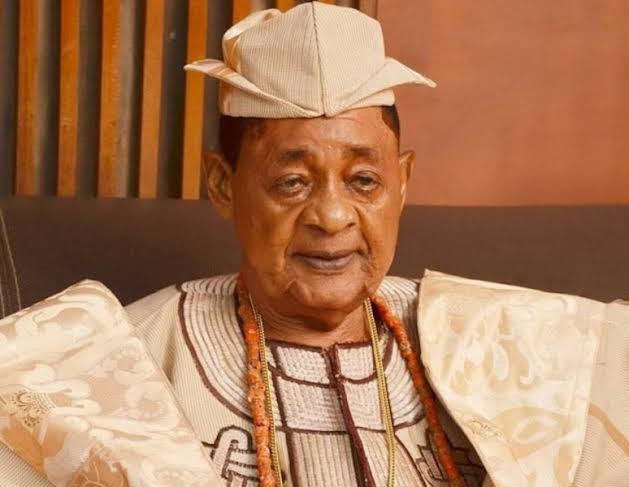
Among Yoruba kings, the title “Alaafin of Oyo” stands not just as a traditional role but as an imperial seat. The Alaafin — translated as “owner of the palace” — is the living custodian of the old Oyo Empire, one of Africa’s greatest precolonial kingdoms. And for over 50 years, Oba Lamidi Olayiwola Adeyemi III sat on that throne, reigning as a king, warrior, philosopher, and cultural beacon.
His death at the age of 83, did not merely mark the end of a reign; it marked the close of a chapter in Yoruba history — the fall of a lion whose roar echoed far beyond Oyo.
The Final Chapter and National Mourning
Oba Lamidi Adeyemi III passed on April 22, 2022, after a brief illness. He died at the Afe Babalola University Teaching Hospital in Ado-Ekiti, sending shockwaves across Yorubaland.
He was the longest-reigning Alaafin in Oyo history — 52 years on the throne — and possibly the most documented in the modern media era. His burial was conducted according to Islamic rites and palace traditions, followed by secret rituals known only to the Oyo Mesi (kingmakers) and the royal priests.
Flags were flown at half-mast across Oyo State. Traditional markets closed. Cultural organizations paid tribute. President Buhari issued a statement calling him “an institution in himself, a reservoir of knowledge, and a bridge between the past and the present.”
His palace — a sprawling edifice with ancient carvings, war drums, and mythical symbols — stood silent. His wives, dressed in white lace, led solemn chants. And the kingdom began the sacred process of selecting a successor — a process that, by tradition, must never be rushed.
Oba Aromolaran of Ijeshaland — The Economist on the Throne
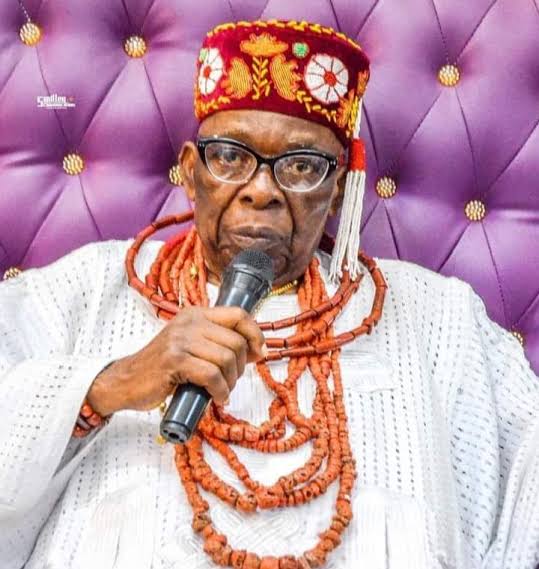
In the cool, hilly terrain of Osun State lies Ilesa, the spiritual and cultural heartbeat of Ijeshaland. And for over four decades, the kingdom looked up to one man — a monarch whose name commanded respect not only in royal courts but in academic and economic circles: Oba Gabriel Adekunle Aromolaran II, the Owa Obokun Adimula of Ijeshaland.
He was not a conventional king. His reign was defined by intellect, diplomacy, and a rare grasp of both numbers and nuance. He was an economist on the throne — a scholar-king whose mind was as sharp as his sense of tradition was deep.
Final Years and the End of an Era
Like many monarchs of his generation, Oba Aromolaran served for decades. By the time of his passing in early 2024, he had sat on the throne for over 40 years, becoming one of the longest-reigning Yoruba kings of his time. His health had declined gradually, and while he remained the spiritual center of Ijeshaland, he had reduced his public appearances.
On the day of his transition, the mood in Ilesa was somber but dignified. Traditionalists announced his passing with sacred rites, while the Osun State government called him “a compass of dignity, intellect, and enduring leadership.”
His burial was kept away from cameras, as tradition demands, but thousands came to pay their respects at his memorial service. The drumming was heavy, the incantations deep, and the grief palpable.
Oba Saliu Adetunji — The Olubadan of Ibadan (1928–2022)
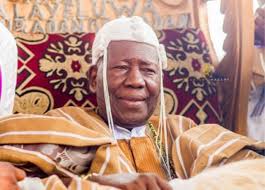
Oba Saliu Akanmu Adetunji ascended the Olubadan throne in 2016, and in just six years, he made his mark as a revered custodian of Ibadan’s complex chieftaincy system. Born in 1928, he lived most of his early life as a record label entrepreneur and business mogul before his elevation through the traditional ladder.
His label, Babalaje Records, helped bring Fuji music to prominence, producing artists like Wasiu Ayinde Marshal (K1 de Ultimate). But when he became king, he swapped music charts for royal scrolls and became a voice of calm and reconciliation in a city long divided by political and chieftaincy rivalries.
His death on January 2, 2022, at the University College Hospital, Ibadan, was met with state-wide mourning. The Ibadan traditional succession system — famed for its merit-based, hierarchical structure — was once again set into motion to find a replacement, but Oba Adetunji’s personal humility and cultural savvy were deeply missed.
Obi Joseph Chike Edozien — The Asagba of Asaba (1925–2023)
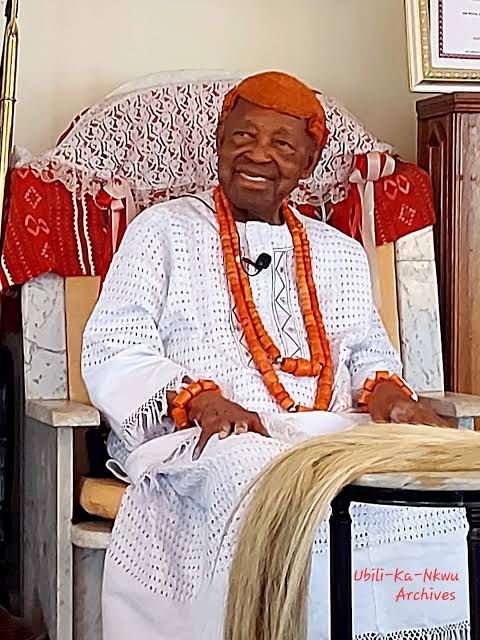
As one of the oldest reigning monarchs in Nigeria until his death in 2023, Obi Joseph Chike Edozien, the Asagba of Asaba, combined the rare prestige of a traditional ruler with the gravitas of an academic titan.
A Harvard-trained professor and first Nigerian dean of medicine, Obi Edozien brought global perspective to a local throne. He was installed in 1991, at a time when Asaba was still struggling with identity in the wake of the Nigerian Civil War. His reign brought modernization, cultural revival, and healing.
His palace became a meeting ground for reconciliation between Eastern and Midwestern Nigerian communities. He championed education and was instrumental in Asaba’s emergence as a cultural hub in Delta State.
His passing in November 2023, at the age of 98, was the loss of a walking encyclopedia — a king whose every sentence held lessons from across centuries.
Oba Idowu Oniru — The Oniru of Iruland (passed in 2020)
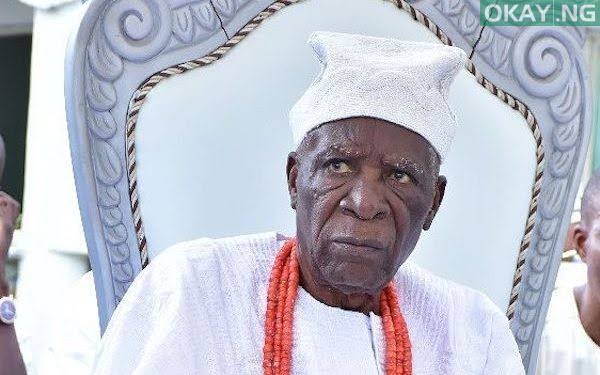
While the Oniru family is often associated with urban Lagos and wealth, the Oniru of Iruland sits on a land soaked in deep coastal Yoruba traditions. Oba Idowu Abiodun Oniru, who reigned from 1995 to 2020, was a moderniser, estate magnate, and strategic planner.
He spearheaded the transformation of Victoria Island and Lekki Peninsula from fishing towns into real estate goldmines. Yet, he also battled to preserve the sacred places of the Iru kingdom, including shrines, waterways, and festivals long under threat from commercialisation.
His death in September 2020 opened up a power struggle within the family, ultimately leading to the ascension of Oba Gbolahan Lawal, a former commissioner in Lagos — a clear example of the politicisation of the throne in an age of urban expansion.
Notable Losses Among Northern Monarchs
In Northern Nigeria, where Emirs often combine spiritual authority with cultural and administrative power, several prominent traditional rulers have passed on.
1. Dr. Shehu Idris – Emir of Zazzau (Zaria)
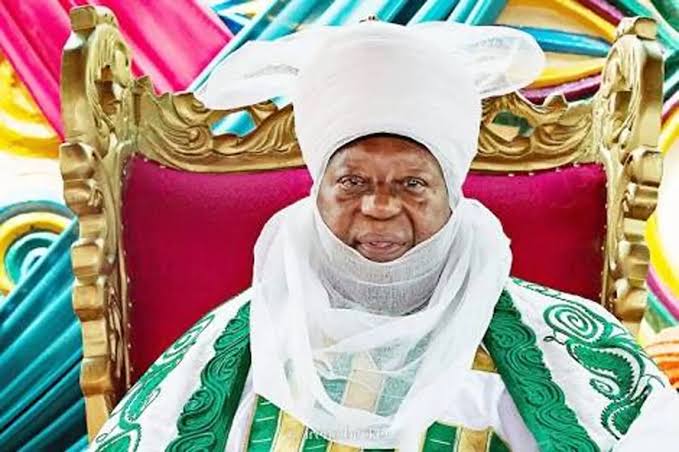
Date of Death: September 20, 2020
Reign Duration: 45 years
Legacy: A symbol of peace and spiritual leadership, Dr. Idris promoted Islamic scholarship, educational development, and unity among Nigeria’s diverse ethnic groups. His passing marked the end of a profoundly respected era.
2. Alhaji Muhammadu Inuwa – Sarkin Beli, Bauchi State
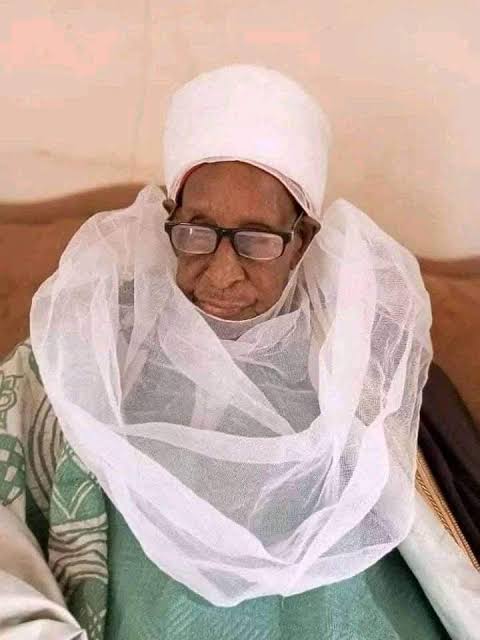
Date of Death: November 2024
Historical Significance: One of Nigeria’s longest-serving monarchs with a 91-year reign.
Legacy: His unprecedented longevity offered continuity, wisdom, and a deep connection to tradition that spanned generations.
3. Alhaji Yunusa Muhammadu Danyaya – Emir of Ningi, Bauchi State
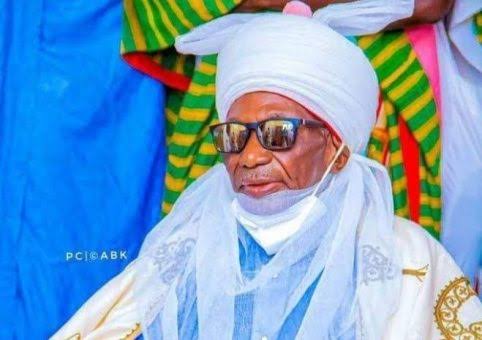
Date of Death: August 2024
Contributions: Revered for his grassroots efforts in health, education, and security within Ningi and surrounding communities.
4. Agwam Tagwai Sambo – Chief of Moroa, Kaduna State
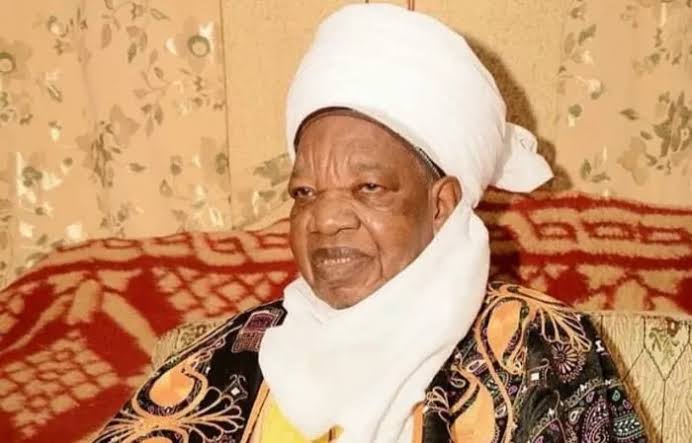
Date of Death: June 14, 2024
Reign Duration: Nearly 60 years
Legacy: A major figure in Southern Kaduna, Agwam Sambo used his platform to advocate for peace and interfaith dialogue amid ongoing crises in the region.
5. Alhaji Dr. Muhammad Kabir Umar – Emir of Katagum, Bauchi State
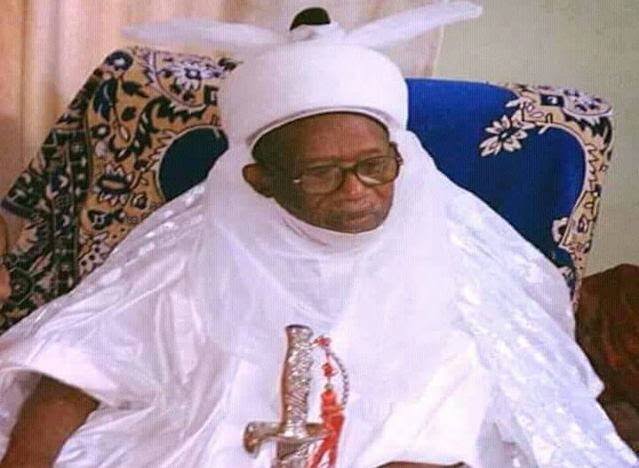
Date of Death: December 2017
Reign Duration: Over 37 years
Legacy: A modernizing ruler who balanced Islamic tradition with developmental governance, with numerous educational projects credited to his reign.
The Cultural Implications of Royal Deaths in Nigeria — Shrines, Succession, and Silence
In Nigeria, the death of a monarch is never just a funeral — it is a spiritual event, a political recalibration, and often a mystical transition with ripple effects that linger for months, even years. These are not presidents whose exits are clean, defined by press releases and state ceremonies. When a king dies, something ancient collapses — and something uncertain begins.
Let’s examine the deeper cultural aftermath of these royal deaths and what they mean for the soul of Nigeria.
1. Sacred Spaces Go Silent
When a monarch passes, shrines dedicated to ancestral spirits and deities often go silent. Traditional priests and palace custodians may cease rituals temporarily, as a sign of respect to the departed king and to avoid spiritual contamination.
For example, in many Yoruba communities, the “Igbo Oba” (the King’s Grove) is closed off, and the talking drums go quiet — because the spirits themselves are believed to be mourning.
In Delta and Edo regions, palace oracles are sometimes not consulted until after the official burial, when the new king has been spiritually initiated. During this limbo, many communities describe feeling “headless” — a cultural vacuum where divine authority is paused.
This silence is not just ceremonial; it is a sacred intermission where the land breathes differently, and the people tread cautiously.
2. The Hidden Rites: Mysteries Behind the Scenes
Royal deaths, particularly among Yoruba, Bini, and Igbo monarchs, often involve clandestine rituals that the public never sees. Most times, the king is not buried immediately. Instead, he is believed to “travel” to the ancestors.
In Ile-Ife, Oyo, and other ancient cities, the king’s body may be kept in spiritual confinement for days or weeks. Senior priests (Oloyes), kingmakers, and royal cult members perform esoteric rites meant to ensure the monarch’s peaceful transition into the spirit realm.
These rites are said to “cleanse the land” and open channels for the ancestors to receive the king. Sometimes, specific members of the palace must go into seclusion for months — a practice called “Ipebi” in Yoruba, or “Ikpu Ndu” in some Igbo traditions.
None of this appears in newspaper obituaries, yet they are crucial in preventing spiritual unrest, which traditionalists believe could manifest in communal strife or natural disasters if ignored.
3. Power Struggles and Political Interference
Behind the reverence of death lies a darker undercurrent: succession battles. In the modern era, these are often more political than cultural.
Historically, succession to the throne followed a fixed lineage — a rotation between ruling houses, ratified by kingmakers and spiritual diviners. But today, many traditional successions are influenced by state governors, political parties, and even courts.
Cases abound:
In Oniru of Iruland, Lagos, factions within the royal family battled for months before the government-appointed Oba Gbolahan Lawal.
In Ibadan, the selection of the new Olubadan has repeatedly sparked disputes between high chiefs and the state government.
In the Ogbomoso royal tussle, multiple court cases were filed just days after the Soun passed, showing how the vacuum of power is quickly filled by lawsuits and lobbying.
This interference dilutes the sacredness of the process. It turns thrones into political weapons, and in some cases, results in monarchs who are enthroned without the spiritual rites that give the stool its ancient authority.
4. The Vanishing Oral Histories
Each royal death often takes centuries of undocumented knowledge to the grave. Most traditional rulers are living repositories of genealogies, land boundaries, spiritual codes, secret languages, and war stories — passed to them orally through initiation.
In many palaces, there are no archives, no recordings, no libraries. Once a king dies, especially without a properly groomed successor or scribe, entire chapters of a people’s identity disappear.
This has prompted cultural advocates and historians to call for the urgent digitisation of oral traditions, the audio-visual recording of elder kings, and the formal training of young palace historians.
If these losses continue unchecked, Nigeria could face a future where its traditional rulers wear crowns but carry no memory.
5. Psychological Impact on Communities
In many communities, the king is not just a ruler — he is the father of all, a spiritual umbrella, and the ultimate arbiter of peace. His death destabilises people psychologically, especially in rural or semi-urban places where belief in ancestral protection is strong.
Superstitions often surge:
- Children are kept indoors after dark.
- Traders avoid opening markets on certain days.
- Some say you must not whistle at night until a new king is crowned — lest you “invite lost spirits.”
- For the elderly, the death of a king may mark the passing of their own era — especially if they grew up under the same monarch.
These emotional and spiritual reactions are often overlooked in mainstream news coverage but form the silent mourning that lingers long after the ceremonial dust settles.
6. Reinventing the Traditional Institution
The recurring deaths of prominent monarchs also raise a serious question:
What is the future of traditional rulership in Nigeria?
Many new monarchs today are bankers, engineers, military officers, or PhDs — some even hold foreign citizenships. While this modernity helps in negotiating with governments and investors, it also creates tension between tradition and tech-savvy pragmatism.
Can a monarch still act as high priest, political mediator, and development ambassador all at once?
The cultural implications of royal deaths thus extend beyond ritual — they’re forcing Nigeria to redefine monarchy in a rapidly modernising society. Will thrones become ceremonial relics? Or can they adapt without losing their spiritual soul?
The answer lies in how Nigeria chooses to remember — and replace — its kings.
CLOSING REFLECTIONS
The passing of monarchs like the Olu of Epe, Oba Lamidi Adeyemi III, and Emir Shehu Idris is more than the end of reigns—it is the fading of living history. These leaders were the last custodians of ancient wisdom in a rapidly changing Nigeria.
Their deaths leave us asking: How do we carry forward their legacy when the voices that anchored tradition grow silent? In their absence, the nation must decide whether to protect these pillars of identity or let them slip quietly into memory.
Their loss challenges Nigeria to reflect deeply on what it means to preserve culture and unity in a world racing toward modernity.


